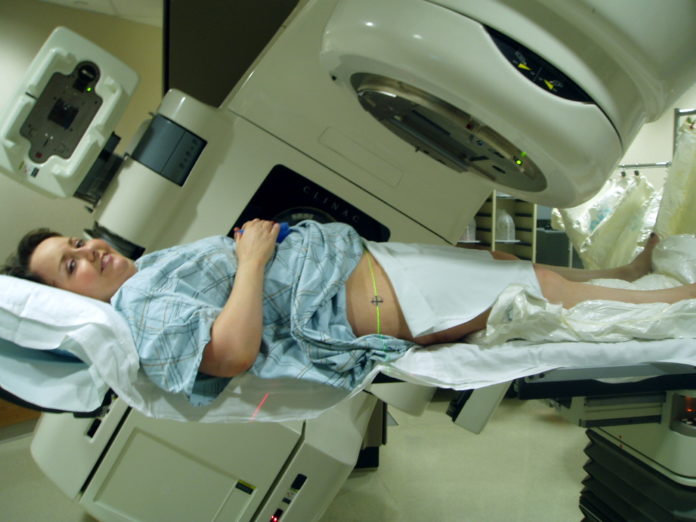Statin therapy reduces the risk of vascular events such as stroke among cancer patients receiving radiation to the head, neck or chest
Cancer patients taking cholesterol-lowering statin medication following radiation therapy of the chest, neck or head had significantly reduced risk of suffering a stroke. This is possibly true of other cardiovascular complications too, according to new research published in the Journal of the American Heart Association.
More than half of cancer patients are treated with radiation therapy, which uses high doses of radiation to kill cancer cells and shrink tumors. While radiation treatment has become more precise and long-term survival rates have improved, the radiation can affect nearby healthy cells and cause side effects many years later.
Side-effects of radiation therapy include scarring or thickening of arteries, and over time that can lead to blockages that cause heart attack and stroke.
“Statins decrease cholesterol levels and have anti-inflammatory properties. Multiple studies have revealed the beneficial effects of statin therapy on reducing the risks of vascular disease in a variety of populations”
This study looked at whether statin medication, which reduces the formation of plaques that block blood vessels, might lower the risk of cardiovascular and cerebrovascular disease after radiation therapy to the chest, neck or head. The researchers found that the use of statins was associated with a 32% reduction in stroke.
“Statins decrease cholesterol levels and have anti-inflammatory properties. Multiple studies have revealed the beneficial effects of statin therapy on reducing the risks of vascular disease in a variety of populations,” said study author Negar Mousavi, M.D., M.H.Sc., at McGill University Health Center in Montreal, Canada. “Statins are protective in patients with heart disease, previous strokes and with high cholesterol levels.”
Data from 5,718 heart attack and stroke patients over age 65 (with a mean age of 75) at McGill University Health Centre in Montreal, Canada was analysed. All patients had undergone radiation therapy for chest, head or neck cancer and majority (4,166 patients) were taking statins. Most of the people in the study had underlying cardiovascular disease.
“Our study demonstrated that statin therapy could be favorable even with the competing risks of cancer and cancer-related mortality in patients who received radiation therapy,” said Mousavi who added, “No other agent is recommended with enough evidence to reduce the risk of vascular events among cancer patients receiving radiation to the head, neck or chest.”
The researchers, however, stress that there is a need for further studies to explore the role of statins after radiation therapy in wider populations and to establish definitive guidelines on the management of radiation-induced vascular disease.


